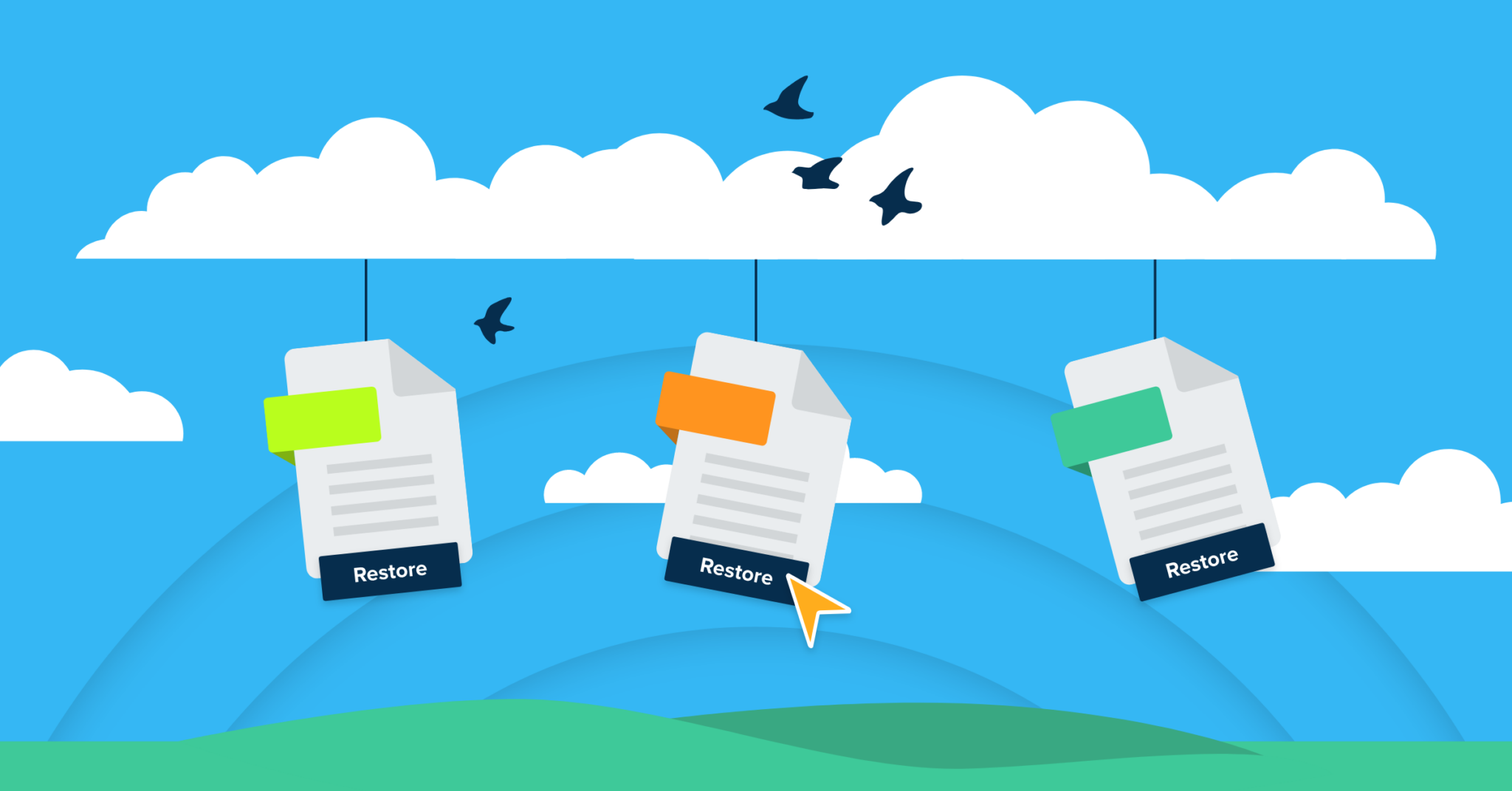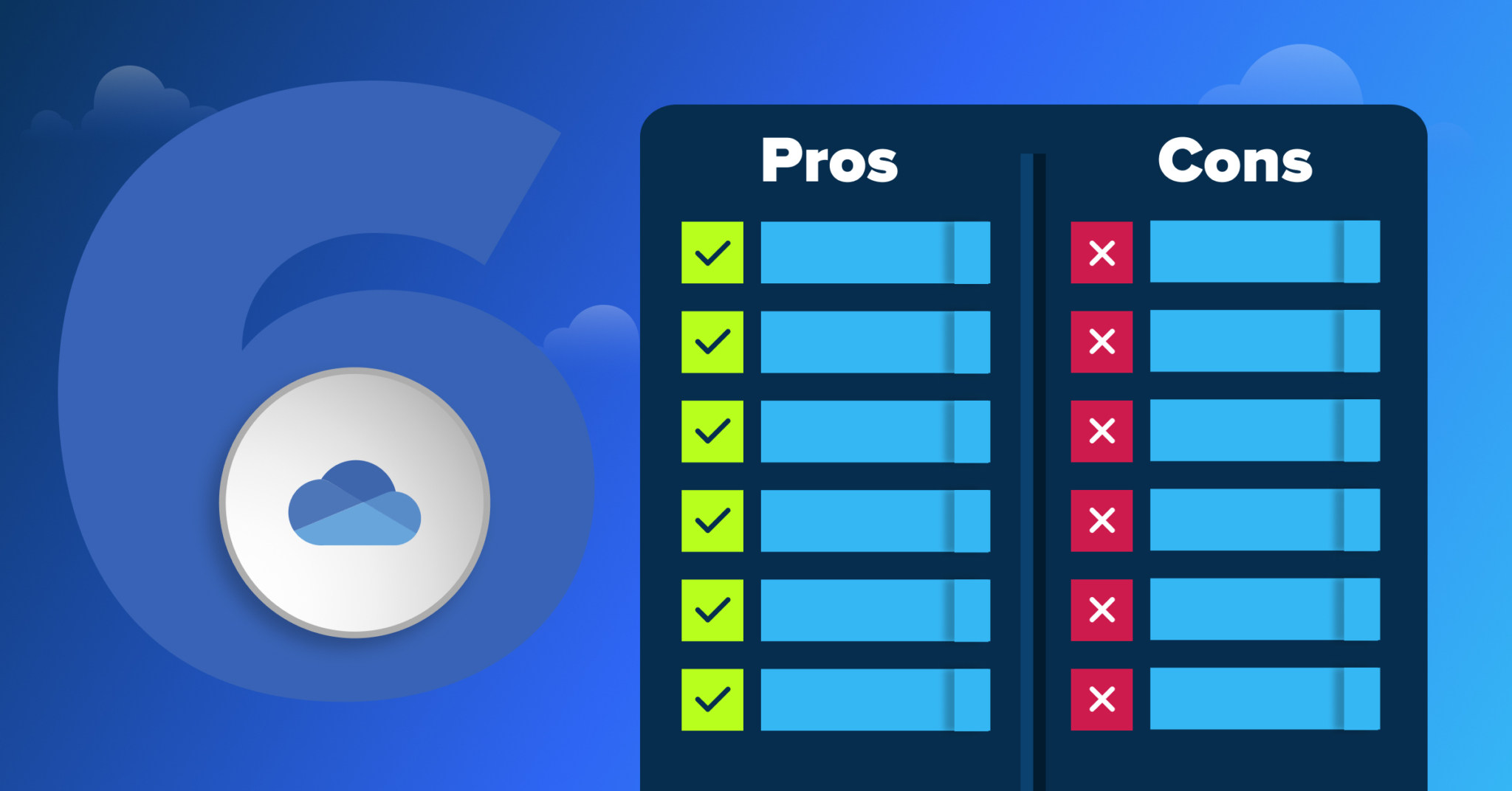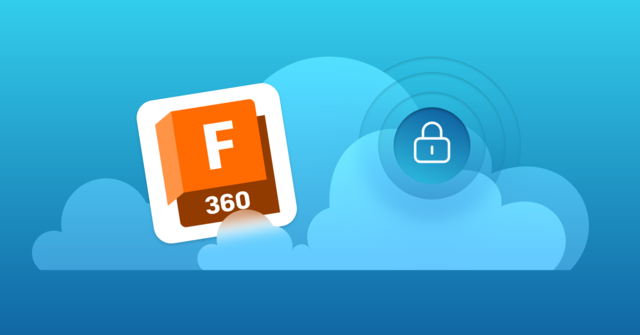
If you own a business or run an organization’s IT department, you know how crucial your files and data are to company operations and the risk of data loss due to natural disasters, user errors, ransomware, and equipment failures. These threats are especially dangerous if you only store your data on local drives without an off-site cloud backup protecting them.
Cloud data backup solutions offer a way to protect your data by storing it in a secure cloud. However, cloud data backups can have varying degrees of automation, scalability, and security.
How to Know If a Cloud Data Backup Solution Is Worth It
While cloud backup is essential to almost any business, not all cloud data backup solutions provide enough benefits and security to be worth the price. As you consider investing in a cloud data backup solution, follow these three tips to ensure you find a cloud data backup solution that can serve all your backup needs and keep your data safe:
1. Check If the Cloud Data Backup Solution Is Secure
Since cloud data backups are responsible for restoring your lost data after a disaster, they need to be secure. If they don’t meet various security standards, they’re more likely to be hacked. Without a secure cloud backup solution in your corner, you’re more likely to lose your data due to ransomware, malware, and other potential threats.
While you look for a secure solution, check that the cloud backup meets these security standards:
- Accounts require two-factor authentication at a minimum for log-in.
- The solution uses individual, unique keys per user to ensure a single hacked account doesn’t lead to an entire system being breached.
- Data is encrypted at rest and in transit, with the encryption utilizing an industry standard algorithm, such as AES.
- Encrypted data remains opaque to the backup application to ensure only your authorized users can control and access sensitive data that must be stored in a way that follows data privacy regulations.
- The backup solution is compatible with the 3-2-1 backup rule (meaning the application supports your company storing three copies of your data on two different media types, with one copy stored in a secure off-site location).
2. Ensure the Cloud Backup Solution Offers Automatic Backups
A great cloud backup solution will allow you to automatically back up your data every fifteen minutes. Since a data disaster can occur at any time, relying on a backup solution that requires manual backups can increase the risk of not having all your critical data stored in the cloud at the time of a disaster. Manual or infrequent automatic backups can also cause your team to lose hours, days, or even weeks of work following a disaster.
A cloud backup solution that automatically backs up your data every few minutes ensures you don’t lose essential data following a disaster. These types of cloud backup solutions can also ensure you meet your data resilience strategy’s recovery time objectives, as you can quickly restore any lost data and resume normal business operations shortly after a disaster. While looking for an automatic backup solution, check that its automatic backups can occur every 15 minutes without impacting your users’ workflow.
3. Find Out If the Cloud Backup Is Scalable
Some cloud backup solutions restrict how much data you can store on their cloud. If your company grows and your data storage needs expand, data caps can prevent you from scaling quickly. You’ll have to decide what data you can afford to delete from your cloud backup, pay for a more expensive plan, or look for another backup partner.
If you expect your data storage needs to grow, you’ll need to verify a potential cloud backup solution is scalable. A scalable cloud backup solution often offers unlimited storage, making scaling painless with no interruptions whenever your storage needs increase. You’ll also want to make sure the cloud backup can ensure you can satisfy legal, compliance, and continuity requirements when your company grows and has to meet more regulations.
Are Cloud Collaboration Platforms Good Backup Solutions?
While your team might use cloud collaboration platforms (CCPs), such as Google Drive, to create documents, spreadsheets, and slide decks, they’re not a cloud data backup solution. Even though CCPs allow you to save files on the cloud while using their platform, they don’t offer the same level of security and data encryption protocols as an actual backup solution. They also tend to come with minimal security reconfigurability, meaning you’ll likely not comply with various data privacy requirements.
Besides not offering the same level of security, these CCPs don’t let you save your files from every endpoint (e.g., computers, smartphones, tablets, etc) at your company. Instead, your team will have to manually enter data from your endpoints to the CCP, resulting in inefficiencies and a higher risk of lost data. CCPs also result in data redundancy risks, as you’ll usually not have a copy of any files you use on the CCP stored in another location.
Instead of solely relying on an ineffective CCP for data storage, you can often pair them with endpoint backup solutions. These cloud data backup solutions allow you to automatically store data from an endpoint device in a secure cloud. Due to an endpoint data backup solution’s ability to secure your data at automatic intervals, they’re a much more secure and effective cloud storage option.
Choose CrashPlan for Endpoint Cloud Data Backup Solutions
At CrashPlan, we’re proud to provide endpoint cloud backup solutions for data storage and disaster recovery. All of our solutions for small businesses, managed service providers, and enterprises are scalable and secure, ensuring you have a solution ready to grow with you. Once you set up our endpoint backup solution, the CrashPlan app will use a real-time file watcher to monitor new files and back them up. During backup, the CrashPlan efficiently checks if data has been backed up previously, and if it hasn’t, it will compress a file block, encrypt that block, and securely transmit it to our secure cloud.
Learn more about our disaster recovery and cloud data backup solutions today. If you want to see how our endpoint backup solutions can automatically store your data every fifteen minutes, please sign up for a free trial.






